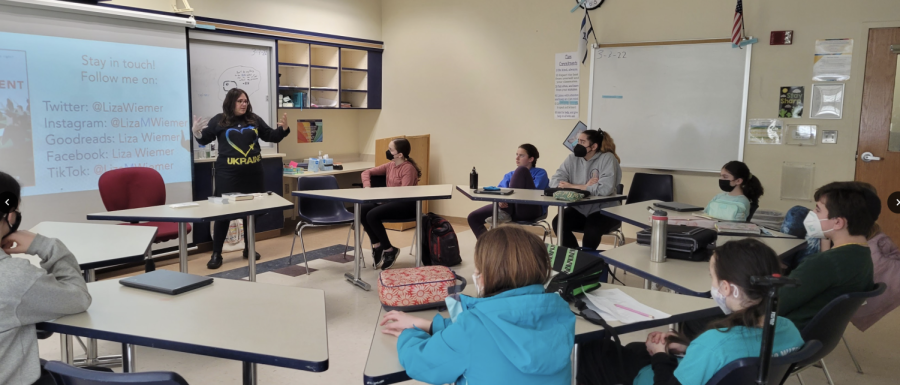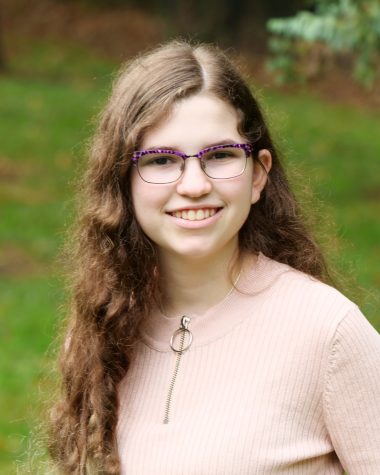Author Liza Wiemer visits Upper School campus to discuss her book, “The Assignment”
March 15, 2022
Author Liza Wiemer visited the Upper School campus on Tuesday to discuss her novel “The Assignment” Based on true events, the book mainly follows two non-Jewish students as they speak out against a class assignment requiring them to debate the Final Solution from the perspective of Nazis.
“I wanted to share the means of allowing people to have the opportunity to stop, think and imagine what they would have done in any of those characters’ shoes,” Wiemer said.
She discussed many ideas she grappled with throughout the book, including the legacy of the Holocaust in life today and what being an upstander looks like.
“For me, it was a fascinating way of putting thoughts together and delving into deeper issues,” Wiemer said.
The book made its way to CESJDS by a series of connections, starting with junior Zack Singerman and his nonprofit, ‘Gen Z Jews: Fighting AntiSemitism’, which serves to educate teens on antisemitism. Singerman interviewed Wiemer for his channel in October and later helped her connect with staff at JDS to arrange a visit.
“I thought it would be a great opportunity to teach Gen Z … they don’t know the antisemitism that’s in public schools and possibly what they could end up facing in college when they’re not in this perfect Jewish community,” Singerman said.
He wasn’t the only one wanting to spread the sentiment. The Book Club Z’man Kodesh, led by adviser Cheryl Fox Strausberg, read “The Assignment” in anticipation of Wiemer’s visit. The ZK was built around representing the diversity of the Jewish experience, and after reading the advanced readers’ copy of the book two years earlier, Strausberg thought it could be a good addition to the reading list.
While many of the other books she chose surrounded Jewish teens and their lives, Strausberg was impressed by how “The Assignment” focused instead on Jewish allies, in a community where Jews weren’t present to stand up for themselves.
“There was something about being an outsider,” she said. “And sort of then also looking at “The Assignment” as ‘so what is life like outside of our Jewish bubble?’”
The book handled heavy topics, and it wasn’t necessarily easy to get through. Book Club ZK member and junior Ruth Ella Karo recounts crying so much that she needed to have a tissue box on hand during most of her reading.
“She [Wiemer] didn’t do any sort of work trying to hide it or make it more glamorous or fancy or anything,” Karo said. “She was like ‘This is reality. This is what happened,’… and ‘this is what is still happening in a lot of places around the country and around the world,’ which is hard to get through.”









Liza Wiemer • Mar 28, 2022 at 8:47 am
Such a great article, Taylor. It was a joy and honor to speak to so many students at your school. Thank you all.